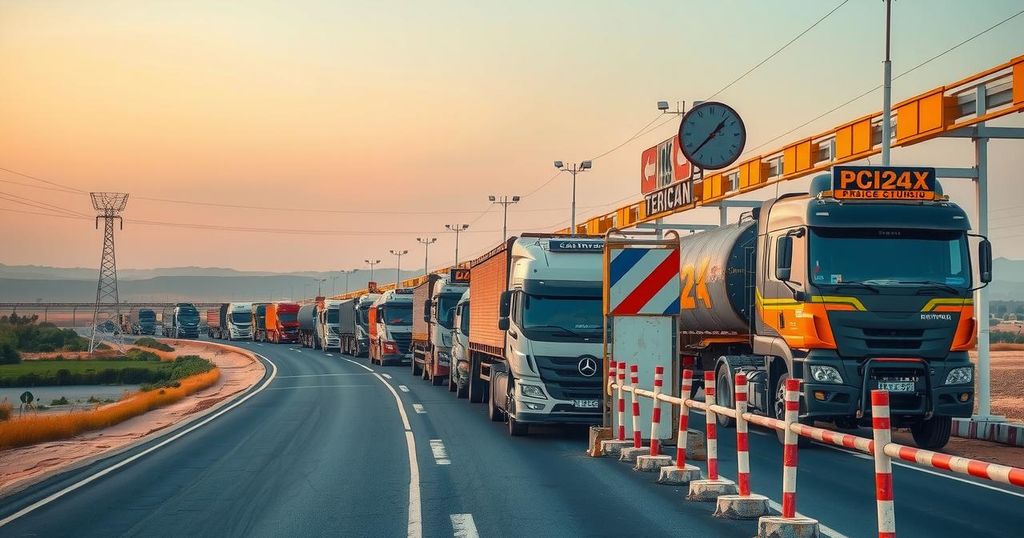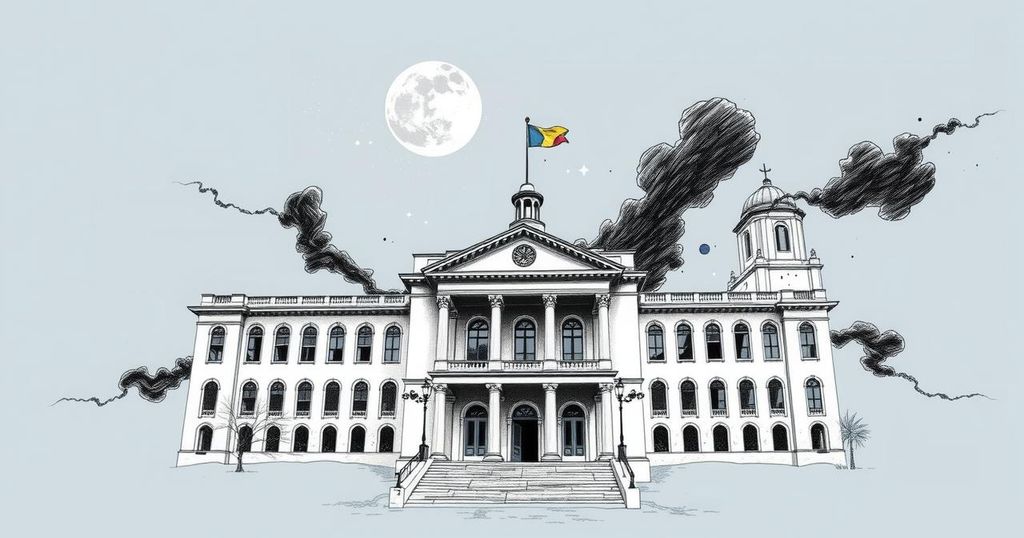Politics
AFRICA, CONGO, CONGRESS, CORRUPTION, DEMOCRACY, DEMOCRATIC REPUBLIC OF THE CONGO, DONALD TRUMP, ECONOMIC FREEDOM FIGHTERS, ECONOMIC FREEDOM FIGHTERS PARTY, EFF, FOREIGN POLICY, JULIUS MALEMA, MALEMA, NATIONAL SECURITY, NORTH AMERICA, PATRICE LUMUMBA, SOUTH AFRICA, STATE DEPARTMENT, U. N, U. S, U. S. CENTRAL INTELLIGENCE AGENCY, UNITED STATES, US
Leila Ramsay
0 Comments
South Africa’s EFF Party Misrepresents U.S. Role in DRC Conflict
The Economic Freedom Fighters (EFF) in South Africa reacted to Donald Trump’s election by disseminating misleading claims about U.S. foreign policy in the Democratic Republic of the Congo (DRC). They alleged that the U.S. benefits from the conflict and the exploitation of Congolese resources, despite evidence demonstrating that the U.S. actively condemns such activities and imposes sanctions on involved parties. The situation in the DRC, complicated by allegations against Rwanda and Uganda, underscores the need for critical analysis of these political assertions.
Following U.S. President-elect Donald Trump’s victory on November 5, the Economic Freedom Fighters (EFF), a far-left political party in South Africa, expressed a controversial perspective. In a statement published on November 6, the EFF asserted that they were indifferent to the election’s outcome but criticized U.S. politics, claiming it is inherently imperialistic. The party falsely suggested that the United States orchestrated the assassination of Congolese leader Patrice Lumumba in 1961 and implied that the U.S. benefits from the ongoing instability in the Democratic Republic of the Congo (DRC). They contended that the U.S. exploits Congo’s natural resources amidst conflict, which they attributed to numerous rebel groups vying for control. However, evidence indicates that the U.S. government has consistently condemned violence in the DRC, imposed sanctions on militia groups involved in illegal activities, and prohibited the import of minerals mined through illicit means. Allegations against Rwanda and Uganda regarding the illegal extraction of Congolese resources have also been endorsed by the Congolese government, exacerbating the complexity of the situation. The EFF’s claims lack substantiation, suggesting that their assertions are more politically motivated than factual.
The Economic Freedom Fighters (EFF) is a significant yet contentious political entity in South Africa, led by Julius Malema, who has garnered attention for his polarizing remarks. The reaction of various African countries to the recent U.S. elections varied widely, with some parties, including the EFF, using the election results as an opportunity to propagate misleading narratives about U.S. foreign policy and its implications in Africa. The DRC, rich in valuable minerals such as gold and cobalt, has faced severe humanitarian crises due to ongoing conflicts, with accusations leveled against neighboring countries regarding their roles in exploiting Congolese resources. Understanding this political backdrop is essential to assess the validity of the EFF’s statements about U.S. involvement in the region.
In summary, the Economic Freedom Fighters’ statements regarding U.S. involvement in the Democratic Republic of the Congo are steeped in inaccuracies and political rhetoric. While the EFF attempts to frame the United States as a benefactor of instability in Congo, evidence counterclaims that the U.S. has denounced violence and sought to prevent illegal mineral trade. The complexities surrounding the DRC’s conflict are aggravated by the actions of neighboring nations such as Rwanda and Uganda, further complicating the narrative. Therefore, it is crucial to approach such statements with a critical perspective.
Original Source: www.voanews.com




Post Comment